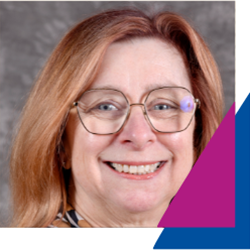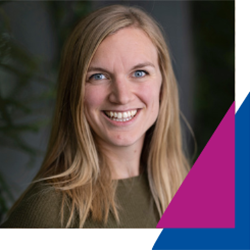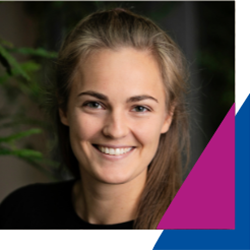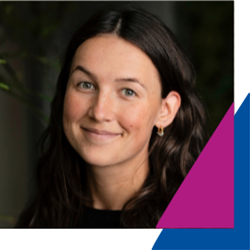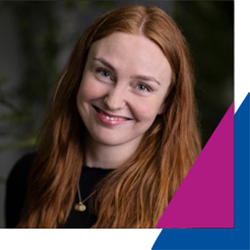Foredragsholdere – KLæM23
Foredragsholdere
Sonja Lutovac
University of Oulu, Finland
Attending to autobiographical experiences in prospective teacher education: implications for mathematics teacher educators
Initial teacher education is a setting that needs to assist prospective teachers in their initial professional development, providing them with opportunities to gain self-knowledge regarding who they are and who they want to become as teachers of mathematics. This can be achieved by seeing autobiographical experiences as a resource in initial teacher education. Autobiographical experiences have been found to have a profound impact on the process of learning to teach and becoming a teacher during initial teacher education as well as on the career-long professional development of teachers. In this talk, I will look at the role of autobiographical experiences of mathematics learning and teaching and their significance for the process of becoming a teacher. Through several of my own studies on prospective Finnish teachers’ experiences, I will highlight the implications for mathematics teacher educators, such as the need to understand these experiences and to use them in mathematics teacher education pedagogies. Finally, I will discuss the benefits of narrative pedagogies to tap into various autobiographical experiences, helping prospective teachers revisit and reframe their interpretations of experiences, develop their reflective knowing and actively guide their own development.
Sonja Lutovac is an associate professor at the Faculty of Education and Psychology, University of Oulu, Finland. Her research focuses on teacher professional development in initial teacher education, especially on how emotionally significant experiences shape prospective teachers’ identities, as well as how teacher education can assist and support them in developing their teacher identities. She has contributed to the high-impact journals in the domains of mathematics education, teacher education and higher education.
Alison Clark-Wilson
University College London, England
Blending computational and mathematical activity within school education: What do teachers of mathematics need to know and do?
Over the last 10 years or so, computational thinking (CT) has become increasingly evident in both mathematics education research and mathematics teaching practice. Where education in relation to CT (which may or may not include programming) is part of the mathematics curriculum, or integrated within a combined set of curriculum subjects, there exist many different perceptions and expectations of its potential within mathematics education. In this plenary, I will begin by expanding beyond computational thinking to adopt a more human-centred perspective in which we can embrace a blend of computational and mathematical activity that is productive for both learners and teachers. This will lead us to consider how we can offer tailored support pre- and in-service teachers of mathematics to create the most productive learning environments for their learners. There is no one size fits all!
Alison Clark-Wilson trained to teach secondary mathematics in England during the 1990s, which coincided with the development of a range of digital technologies in mathematics education. She piloted many of these in her classroom (LOGO, spreadsheets, graphing calculators/software, and dynamic geometry software) before moving into academia to lead a number of award-winning curriculum design projects (RM MathsAlive!, Intel’s Mathematical Toolkit) and online teacher professional learning initiatives (EdUmatics). Alison’s 2010 PhD study introduced the Hiccup Theory of teacher learning, offering insights into the processes that underpin teachers’ classroom-based professional learning. Alison is currently involved in projects that aim to bridge the many gaps between academic knowledge, technology developments and teachers’ classroom practices in mathematics education with the aim to improve the quality, and equitable access to digitally-enhanced mathematics education for all learners. Alison is the author of over 50 publications, to include four books, the most recent of which is the 2nd edition of Mathematics Teaching in the Digital Era: International Research on Professional Learning and Practice. Alison led the thematic working group on “Teaching mathematics with technology and other resources” at the European Congress on Research in Mathematics Education between 2017 and 2021, which continues to be an inclusive forum for all researchers interested in this theme. Alison gave an Invited Lecture at ICME 14 on the theme (Re)Assessing Mathematics: Retaining the Integrity of Mathematics as a Human Activity in the Digital Age. Her current research is focused on the leading edge of technological development in mathematics education (extended realities, artificially intelligent systems and teacher dashboards), with a firm eye on the trailing edge - how to continually support all teachers to learn about, and implement digital technologies in their professional practices in discerning ways.
Innblikk i fire doktorgradsprosjekt
I dette foredraget skal fire stipendiater fra matematikkseksjonen ved ILU, NTNU, fortelle om sine prosjekter.
Sigrid Iversen Klock
NTNU
Hvordan arbeider elever og lærere med argumentasjon og bevis i matematikk på barnetrinnet?
Sigrid er stipendiat i matematikkdidaktikk ved institutt for lærerutdanning ved NTNU, og har jobba i skole og lærerutdanning siden 2010. Hun er tilknytta prosjektet ProPrimEd (Reasoning and Proving in Primary Education). Sigrid har deltatt i en intervensjon der forskere og lærere i samarbeid har utviklet et opplegg for å introdusere matematisk argumentasjon på barnetrinnet. Avhandlingen undersøker elevers og læreres arbeid med argumentasjon og bevis under intervensjonen.
Reidun Persdatter Ødegaard
NTNU
Bruke rollespill i lærerutdanninga som en tilnærming til å lære å lære å undervise resonnering og bevis
Reidun er stipendiat i matematikkdidaktikk ved institutt for lærerutdanning på NTNU og er tilknyttet prosjektet ProPrimEd (Reasoning and Proving in Primary Education). Reidun har jobbet som universitetslektor på lærerutdanninga siden 2017, og har frem til hun begynte som stipendiat i 2020 hatt interesse for hvordan lærerutdanninga kan legge til rette for at lærerstudenter får mulighet til å jobbe med undervisningspraksiser. Doktorgradsprosjektet går ut på å undersøke lærerstudenters muligheter for å lære seg å lede matematiske samtaler som fremmer elevers resonnering og bevis gjennom å bruke rollespill i lærerutdanninga.
Astrid Hågensen Kleven
NTNU
Innføring og bruk av samtaleregler for å øke produktiviteten i matematiske samtaler i begynneropplæringa
Astrid er stipendiat i matematikkdidaktikk ved institutt for lærerutdanning ved NTNU og arbeider med et doktorgradsprosjekt om matematiske samtaler i begynneropplæringen, og mer spesifikt hvordan vi kan legge til rette for produktive matematiske samtaler, hvor barn får rike muligheter til å lære seg matematisk resonnering. I tillegg interesserer hun seg for hvordan de yngste elevene kommuniserer matematikk multimodalt – med et spesifikt fokus på bruk av tegning.
Gunnhild Saksvik-Raanes
NTNU
Digital vurdering av barns tidlige tallforståelse i overgangen fra barnehage til skole.
Gunnhild er stipendiat ved matematikkseksjonen på NTNU og er i ferd med å ferdigstille et doktorgradsprosjekt om digital vurdering av tidlig tallforståelse. Hun har tidligere jobbet som lærer i grunnskolen og har gjennom doktorgradsprosjektet fattet økt interesse for barnehagematematikk og særlig barns matematiske erfaringer i overgangen fra barnehage til skole. Etter stipendiatperioden ved NTNU begynner Gunnhild i ny jobb ved matematikkseksjonen på barnehagelærerutdanningen ved DMMH.


